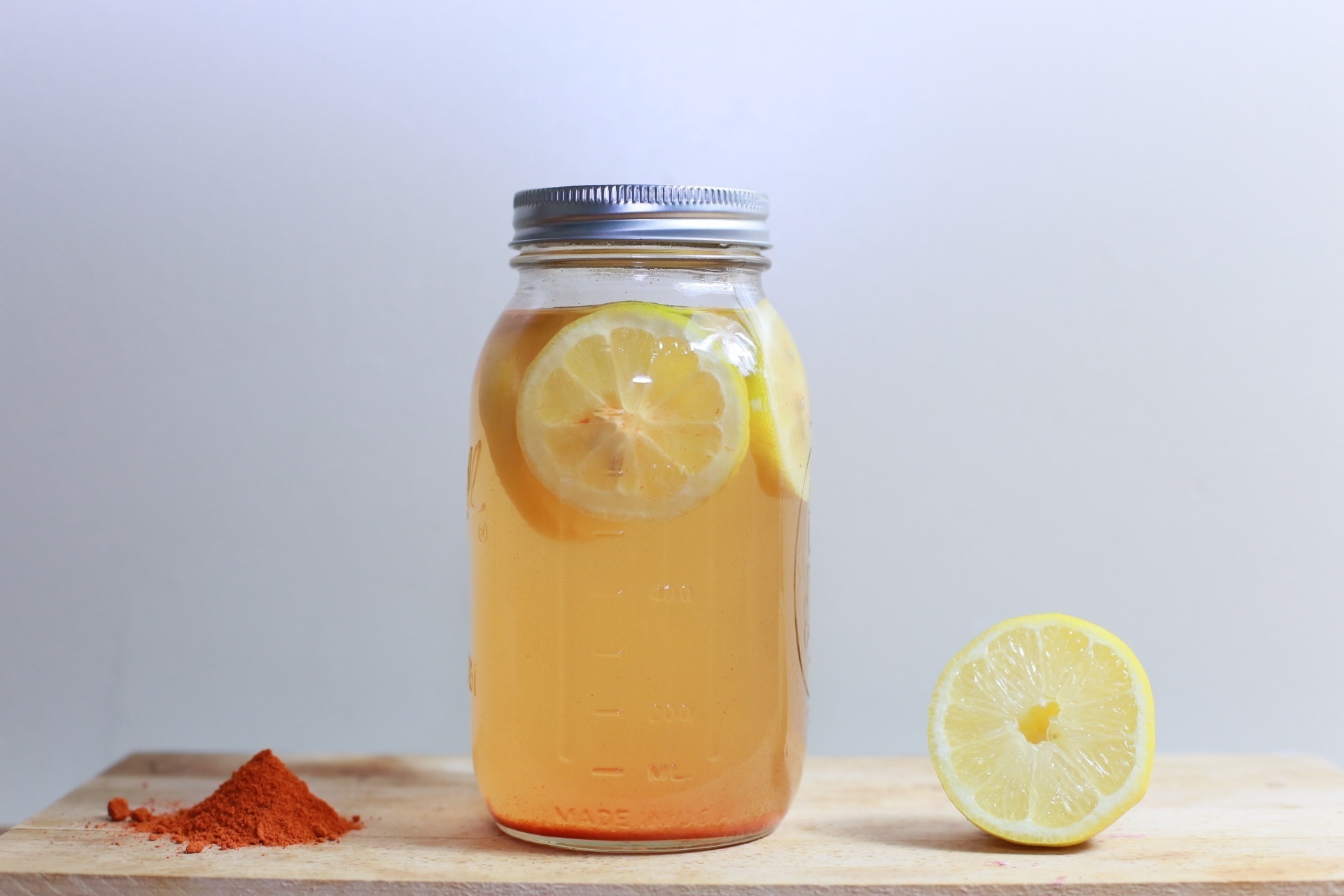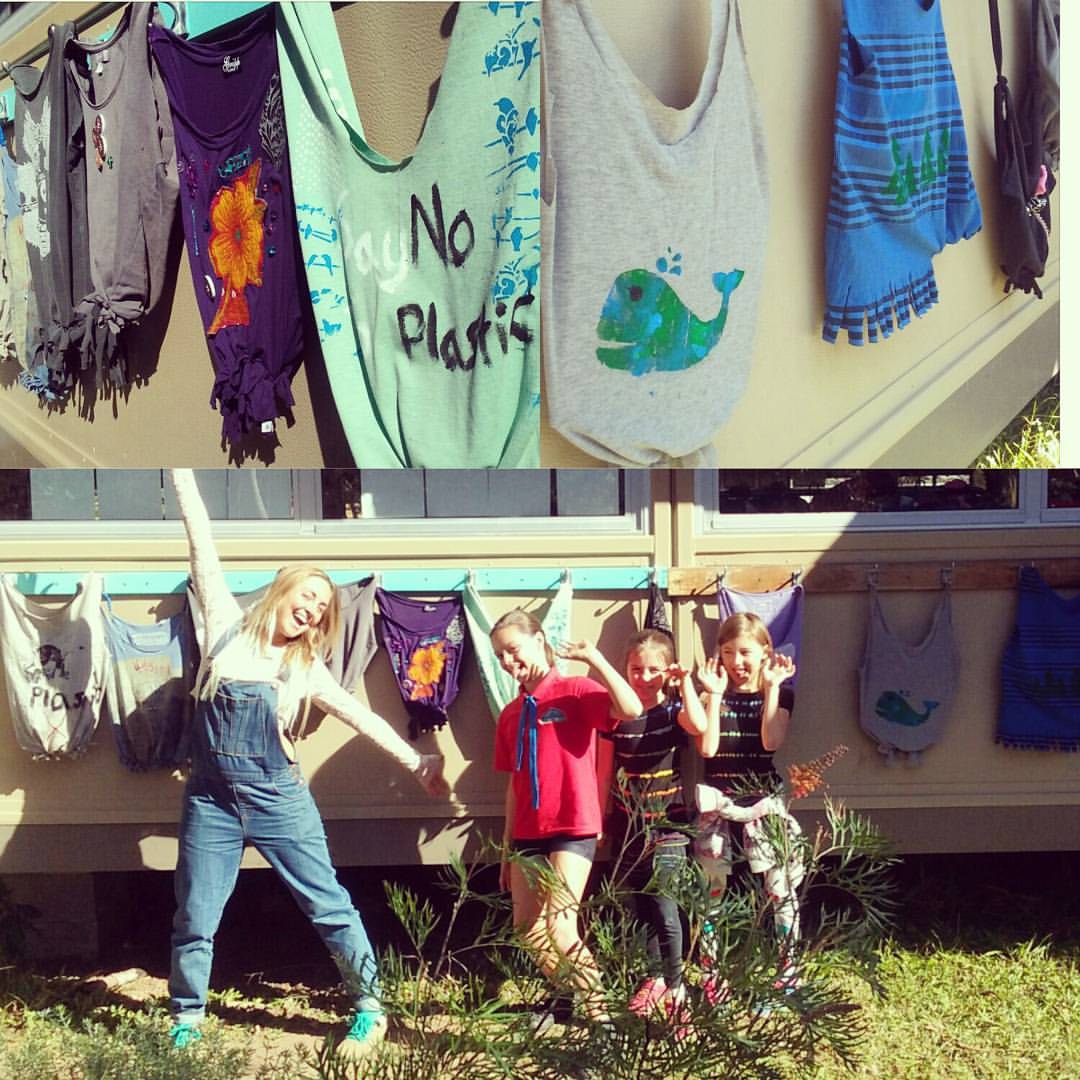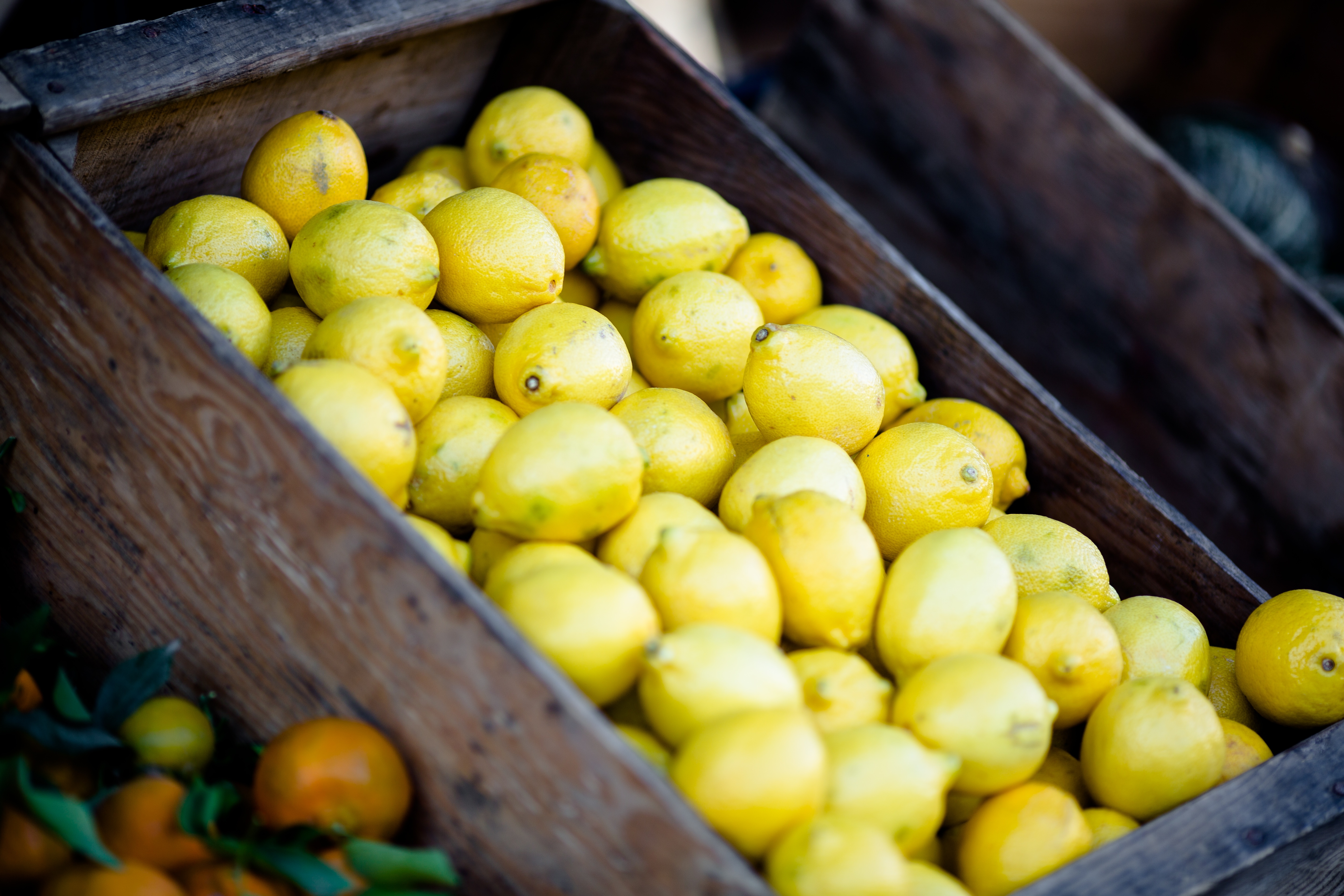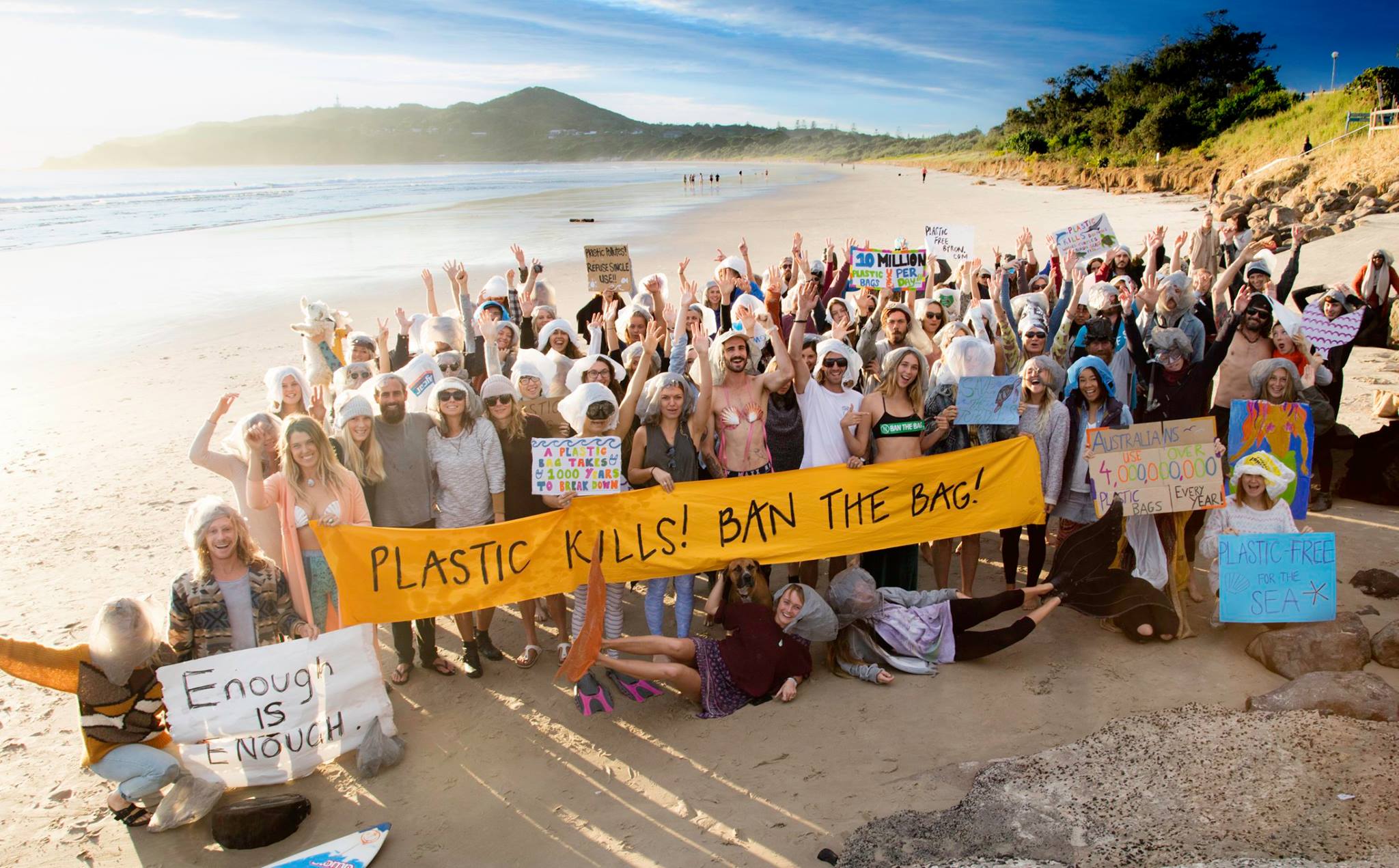This is a guest post by marine biologist Alice Forrest. Alice has just returned from French Polynesia, where she was studying the impacts of plastic on fish populations.
It's everyone's favourite time of year again: Plastic Free July. The perfect distraction from cold weather and the lack of new Game of Thrones episodes in your near future. Whether you're participating in Plastic Free July or not, now is the perfect time to take a look at your plastic use, and figure out the best way to reduce it.
This is not about beating yourself up every time you shop, or having to repent every time you buy a coffee. And it's not about an evil material plotting to take over the world. It's flawed design: making products that we only use for a few minutes, or a couple of times, but making them out of a material that lasts forever. This plastic, as you know, often ends up in our oceans and our animals. It entangles, chokes and starves. It's introducing harmful chemicals into our food chain, and into us. But it's an easy habit to break. Excessive use of single use has only been around in our generation, and we can be the ones to make a change.
It starts with you. Every time you accept a plastic bag, buy a bottled beverage or buy a disposable coffee, you're supporting an industry of plastic waste. You vote with your money every time you shop. While you may re-use your plastic bags as bin liners, or re-fill your plastic bottle, they're still made from oil (8% of global oil is currently used in plastic production). Recycling rates are low, and over a million tonnes of waste is landfilled in Australia every year. If you want to start being part of the solution, here are some ways you can begin. Are you up for the challenge?
Read more: Everything You Need In Your Plastic Free July Toolkit
1. Just Say No.
Say no thanks to straws and bye-bye to bags and bottles. None of the main four polluting items - bags, bottles, coffee cups and straws - are necessary for a happy life. Remember that our planet is more important than that momentary convenience, and avoid plastic where possible.
2. Be alternative: become a jar hoarder.

Glass jars can be magically transformed into coffee cups, seed sprouters, macramé plant holders, sauerkraut/kim chi/kombucha brewers, and storers of everything from oats, to toothpaste, to bulk chia seeds, to soup. Finding alternatives, like glass jars, paper mushroom bags, and beeswax food wraps is part of the fun.
3. Have lots of reusable bags, everywhere.

I'm sure you already have lots of canvas tote bags stashed away, but if you don't it's also really easy to make bags out of your old t-shirts with no sewing. Then, put them in our car, in your kitchen, in your other bags. Get into the habit of having them around. If you forget, buy less and carry it.
Read more: How To Make Your Own Re-usable Fruit & Vegetable Bags
4. Find your farmers market & bulk food store.

Even in the cities, farmers markets are everywhere, and bulk food stores and food co-ops are popping up too. Find your local and acquaint yourself with the awesomeness of being able to buy bulk (and reward yourself with some chocolate covered almonds, available at most bulk wholefood stores).
5. Change your trash.
While at first you will miss those plastic bag bin-liners, you'll soon find that as you cut down on waste you'll have a lot less trash to dispose of. By putting an organics bin in your kitchen (for your compost, or a friends), or a Bokashi bin, you won't have stinky food scraps in your trash. Ultimately, we are using too much stuff, and wasting too much. Changing habits will reduce your trash.
6. Start a discussion.
Look at your life, and where you keep using plastics. Then find alternatives. Trust me, all the problems you're having have been faced by other people trying to rid their lives of plastic, so talk to your friends and work together to find fun ways to change. Google, along with inspirational Instagrammers like plasticfreelife and plasticfreemermaid, are your friends for tips and ideas.
7. Start a movement.

[Image Caption] The 'Plastic Free Byron' movement at their recent rally to ban the bag in Byron Bay!
Inspirational groups and ideas like Boomerang Bags, Topless For The Sea and Take Three were all started by people trying to do what they can, and inspire others. Get involved in existing groups in your area, or start something yourself – a beach clean, a bag-making night, a toothpaste making workshop – share some skills and make some friends. Use your voice to support legislation like Ban the Bag, and Container Deposit systems. It works – NSW is currently implementing a ten-cent refund for bottles and cans, and bags are already banned in SA, NT, Tassie and the ACT. Be part of the fight.
Read more: How to Ban Plastic Bags In Your Community!
8. Don't Buy Into 'Bio'!
The UN recently published a paper saying that 'bioplastics' may actually cause more harm than good for our oceans. Bioplastics are made from biological (or plant based) substances, not petroleum. However there are many different types, made from a range of materials. Essentially, many of these still don't break down in the ocean or in the environment.
Look a little closer and you find Monsanto plant products, and suspect and confusing labelling, like "compostable" (often only valid in industrial composts, not your backyard), or "degradable" (i.e. not biodegradable and won't go away, but breaks into little pieces quickly). Similarly 'BPA Free' is no guarantee that there aren't other harmful chemicals leeching from the plastic into your food, drink or shower products. The confusing labelling is capitalised by companies making money from the green label. Instead of switching from single-use plastic to single-use bioplastic, go reusable and recycle or repurpose things you already own (like cups and bags).
9. Be Inventive.

Forgot your reusable cup but really want a coffee? Pop into a Vinnies and buy a cool old mug (then leave it in your car for next time). Forgot your produce bag at the supermarket? Use a paper mushroom bag this time or get a cardboard box.
10. Get Your DIY On!
Why not try your hand at making your own versions of the products that always seem to come wrapped in copious amounts of plastic? Creating your own toothpaste, body scrub or even lip balm is a fun way to minimise waste. Plus, you'll not only be saving the planet, but saving your spendings too!
"It's hard to start off with. You'll forget bags, spill lid-less coffees and accidentally get served straws. But instead of being overwhelmed by our plastic-filled world, learn from the mistakes and keep trying."- Alice Forrest
It's hard to start off with. You'll forget bags, spill lid-less coffees and accidentally get served straws. But instead of being overwhelmed by our plastic-filled world, learn from the mistakes and keep trying. Trust me, it gets easier. Considering that every piece of plastic ever made still exists, every piece of plastic you don't use makes a difference and potentially saves a turtle. And considering that plastic can last forever, you've probably saved many turtles.
Try it for a day, or for Plastic Free July, or commit to doing what you can every day. Or eradicate plastic one item at a time. Whatever you choose to do, just do something, make a start and enjoy the challenge. Seize this opportunity to save turtles, protect the oceans and help out your own health and happiness by starting to cut plastic out of your life.
Alice is a dedicated conservationist, activist, mermaid, planeteer & adventurer. Alice believes that by working together and staying positive, we can tackle the many problems facing our planet. You can learn more about protecting the big blue by following Alice on Instagram.
